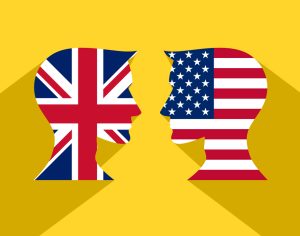Customs expert Arne Mielken tells Elite Business that many firms are still facing difficulties, many months after Brexit became a reality.
Twelve months into Brexit, and many businesses have still not adjusted their supply chains to deal with life away from the European Union (EU). We are dealing with the real life experiences of companies every day.
One of the comments we regularly hear is this: ‘We have an EORI number (Economic Operator Registration and Identification) and a broker, which is what we were told to do, but it’s clearly not enough. Our goods still get stuck. Can you help us?’
Supply chains breaking down
The emergence of a new border, along with the incorrect or incomplete evaluation of the consequences for your business, is the principle reason why goods are failing to arrive when they should. Moving goods in the manner that you did previously, and expecting that to continue seamlessly post-Brexit, is doomed to failure.
Brexit, from a trade perspective, has resulted in the disruption of previously existing supply chains that were drawn up when the UK was still a member of the EU’s Single Market.
It’s now similar to trading with China or US
One way to approach the transfer of goods, to and from Europe, is to follow the same procedures as if you were trading with China or the US. Lodging a customs declaration with China is no different to doing it with Germany or France.
Because the UK is nowadays viewed as being a ‘third’ country by the EU, it means you may have to find yourself an EU-based trading partner to enable you to move goods across borders. It’s the UK’s new position in the world order.
The new EU-UK border means the old way of moving goods is no longer available. So businesses need to thoroughly and carefully re-engineer their supply chains. European companies are also concerned about the additional risk and cost of complying with EU and UK law.
EU importers of UK goods also want products delivered to their warehouse door, and they would like the exporter to face that responsibility rather than themselves. UK bosses may have to explore new trade routes or simply bite the bullet and consider opening a small office within the European zone.
By having a presence in either Germany or France, or in any of the other EU member states, this is one particular solution for delivering goods to warehouse doors on time. One other possible option is for companies to pay an official distributor, or a UK or EU customs agent, to bear the risk that the new paperwork and payment obligations are satisfied.
Full customs declarations in 2022
What makes the problem even more acute is that current delayed customs declaration easements by HMRC will be coming to an end on December, 31st, 2021. This means every EU trader importing to Great Britain needs to submit full customs declarations.
This will create even more compliance checks, and their associated costs. Therefore, we recommend working with a trusted, competent customs agent. This will ensure that declarations are accurate and completed on time
Growth opportunities
But all is not lost. Businesses can still grow if they make the correct administrative decisions regarding trading between the UK and EU. But companies must learn how to lodge declarations legally, thoroughly and competently, as this will ease the pain that businesses may experience when exporting or importing goods to and from the UK or Europe. Get these procedures under control and it’s the first step towards greater profits.
“
Share via:








































